Connecting through fashion
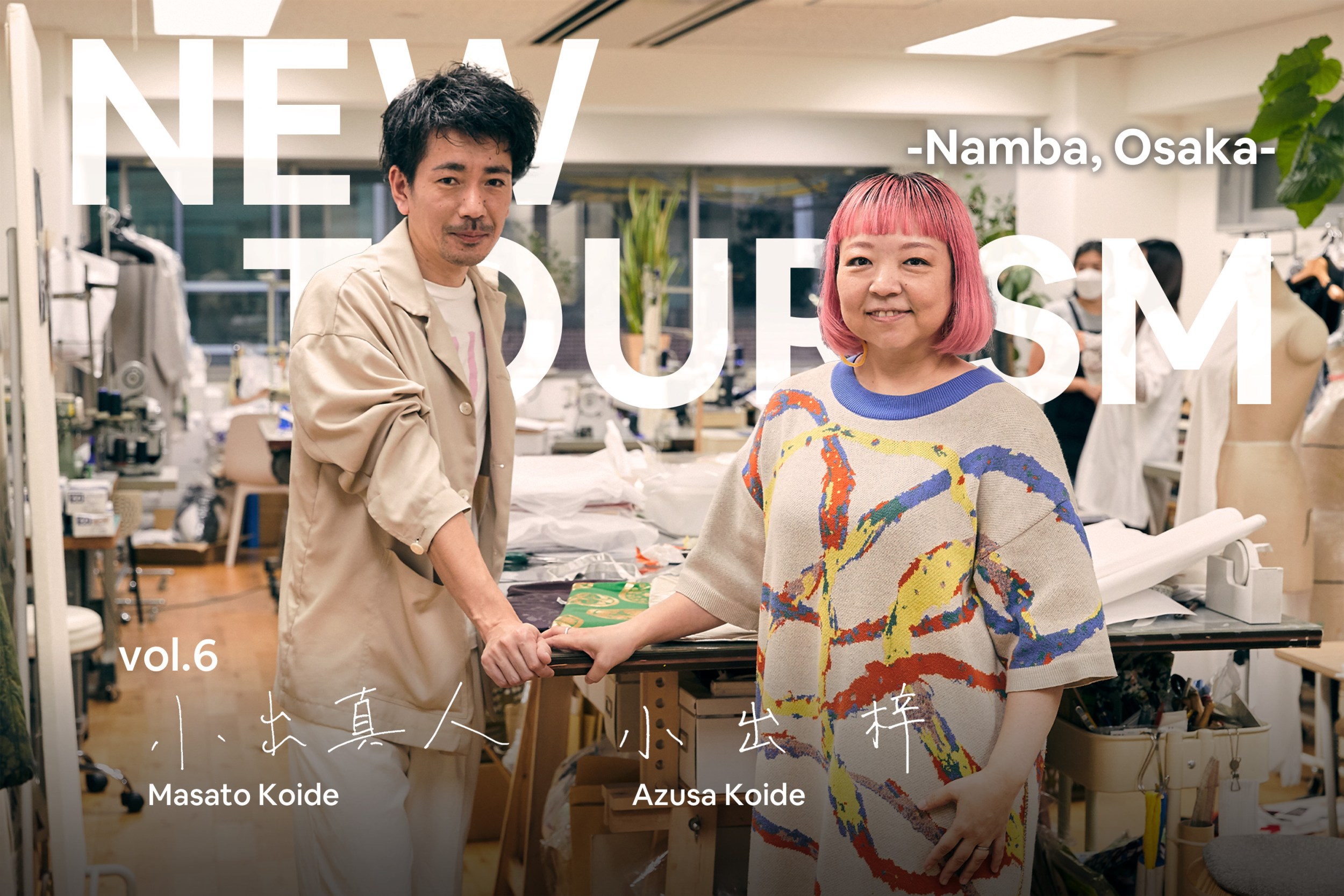
Masato & Azusa Koide, Directors, Atelier M/A
Atelier M/A was established in Osaka by designer Masato and pattern-maker Azusa. Inspired by art and emotion, the label produces sustainable fashion with a low environmental impact.
The starting point for their business began in Italy, where Masato and Azusa lived from 2001 and 2004, respectively.
“I studied in Italy from the age of 21 after winning a prize in a fashion contest that supports study abroad,” said Masato. Three years later, he married Azusa, and she moved to Italy with him.
“Before moving, I worked as a designer at a company in Osaka,” said Azusa. “After arriving in Italy, I attended the Secoli School in Milan, which specializes in pattern making, and my husband worked for a fashion brand called hLam in Biella, northern Italy. After spending a year or so living a “weekend” marriage, I also moved to Biella, to gain experience in a nearby pattern office.”
The designer couple behind hLam had a particularly strong influence on Masato and Azusa.
“I learned a lot from their attitude toward their work, and how clothes are connected to food, clothing, shelter, respect for nature and tradition, curiosity, and a strong will to live each day. I began to understand as I connected the dots and paid attention to matters outside of fashion,” said Masato.
After living in Italy, which shaped their values, they returned to Japan and in 2018 launched Atelier M/A in Osaka.
“The culture of cherishing your hometown in Italy is wonderful. Instead of gathering in the city like we do in Japan, there are so many people who work globally but are still based in their hometowns and have a love for their local cuisine and hometown. We decided to grow with the place where we grew up, out of a desire to share in that culture,” he said.
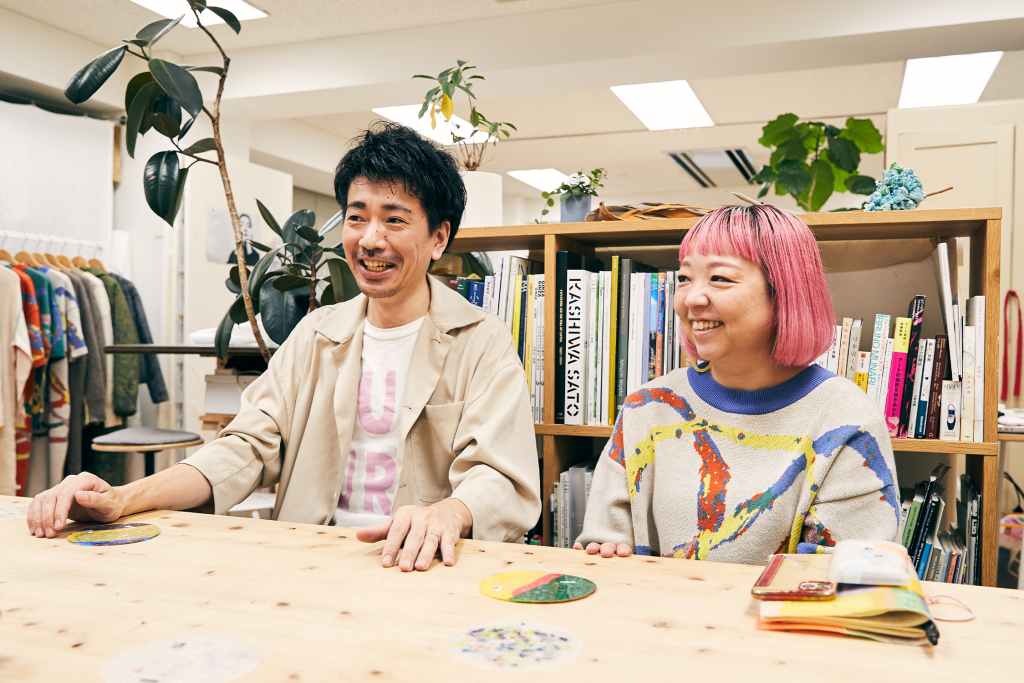
Overcoming material values for a sustainable world
To date, the fashion industry has been based on mass production and mass consumption, but sustainability is becoming as important as a product’s aesthetics.
“It is difficult to transition to a sustainable world if we continue to view fashion as a material value,” said Masato.
In order to challenge this, they take a contemporary art approach to their fashion, inspired by the work of Italian artist Fontana’s “Spatial Concept, Expectations”.
“His work is made by punching holes into a plain canvas. It expresses a new way of thinking that goes beyond the conventional framework of art. It is very difficult to create a work that creates a major shift in your perspective, but we want to do the same.”
Atelier M/A plans to produce original yarns by recycling cloth scraps, but the path is not straightforward.
“When I asked a contractor to pulverize them, he refused, saying, ‘We can’t do it for anything less than a ton.’ It’s a lot of work, but we pulverized them ourselves with a home mixer and by hand,” said Azusa.
For the duo, this effort is worth it.
“The milled scrap cloth is spun together from organic cotton and short-fiber cotton that would usually be discarded. They are intentionally mixed with a wide variety of materials and colors, and the unique look of recycled materials is what makes them so appealing,” said Masato.
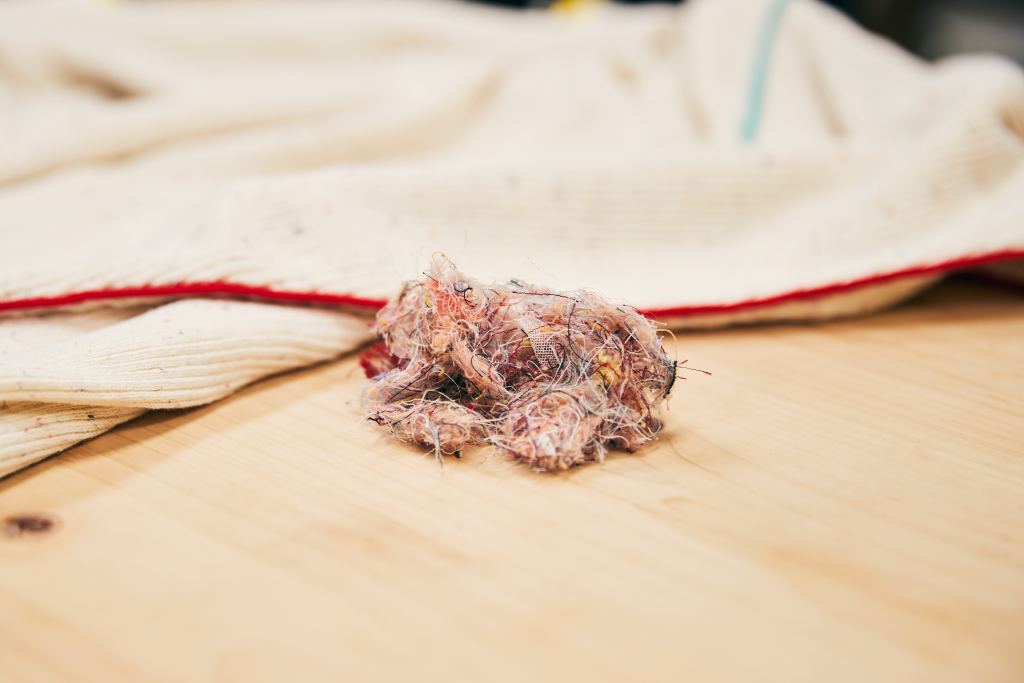
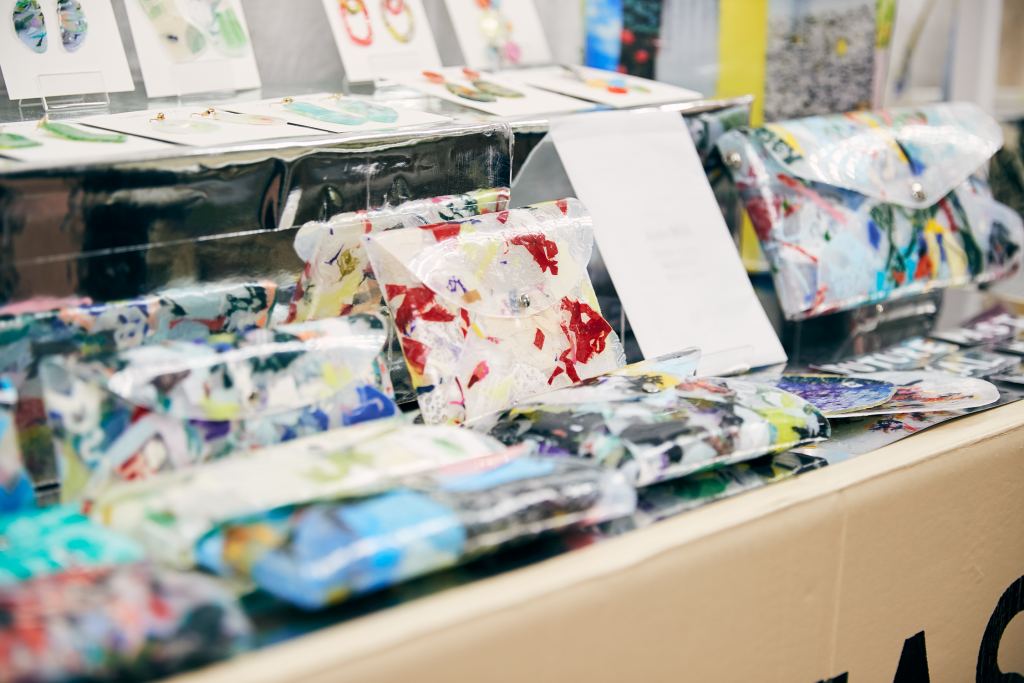
The Japanese principle of reuse
The pair also like to reuse traditional Japanese materials, such as beautiful kimono obis.
“Living in Italy gave me the opportunity to reconsider Japan from outside,” said Masato. “I have come to want to carry on traditional Japanese culture in a style that fits in with people’s lives today, so I remake and sell attractive Japanese textiles as bags. I try to put the materials into forms that will give them as much use as possible.”
This approach aligns well with the Japanese principle of re-creation.
“Originally, Japanese kimonos were tailored without cutting the fabric as much as possible,” says Masato. “It is rational, shows respect for the weaver and the life of the fabric, and can be easily re-tailored. It is very well thought out. I think there is a lot for people today to learn about material things and how we interact with nature.”
“How you dress is a form of expression, and we want to pursue fashion that naturally leads to a sustainable world.”
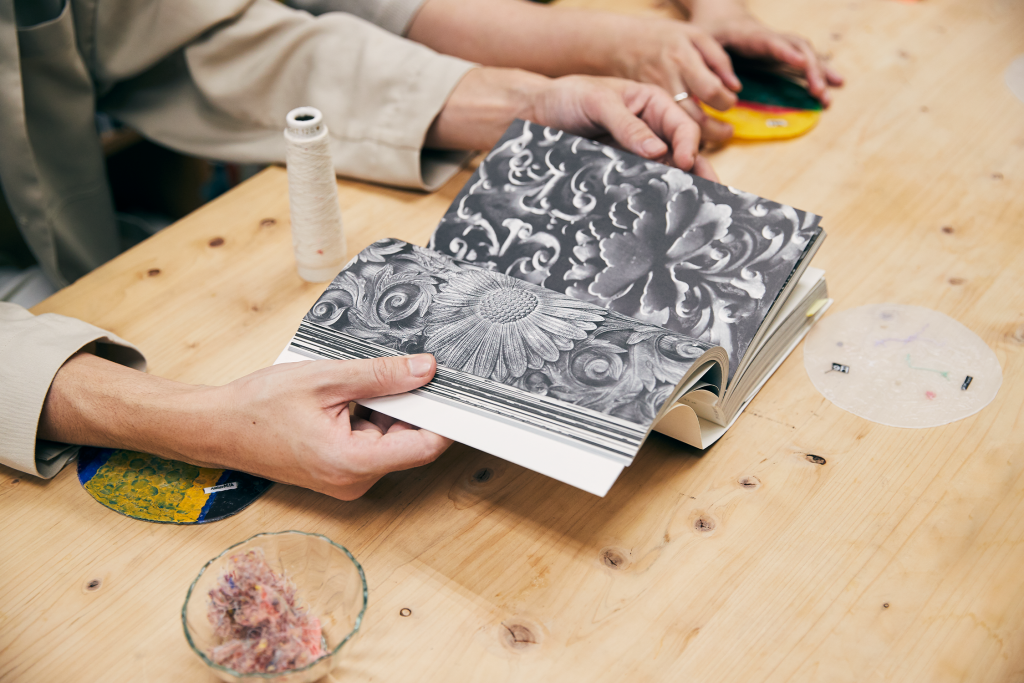
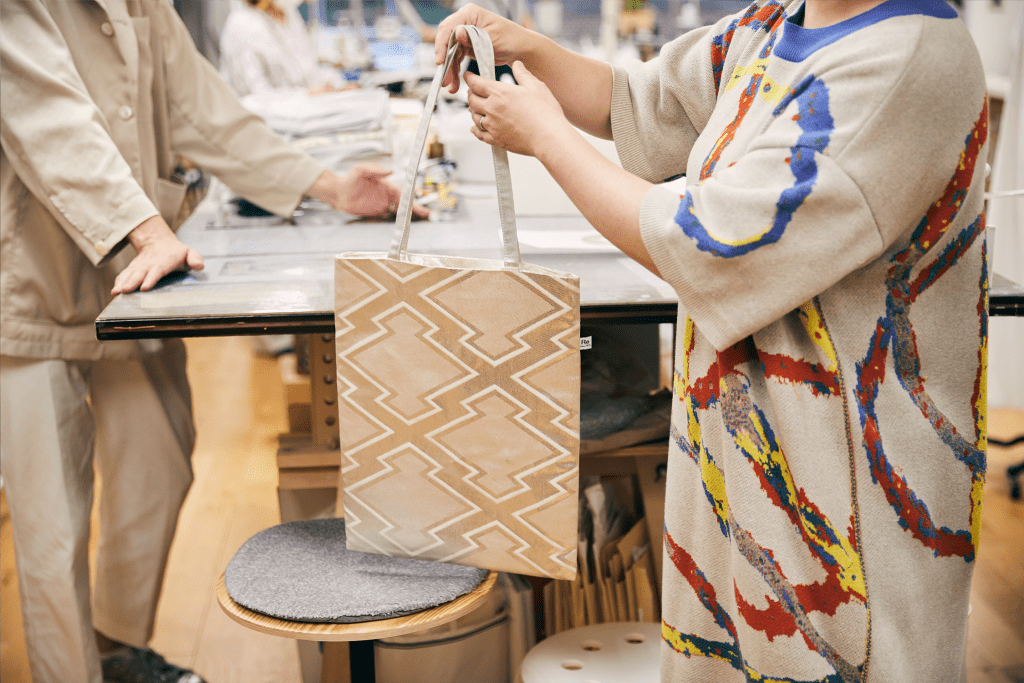
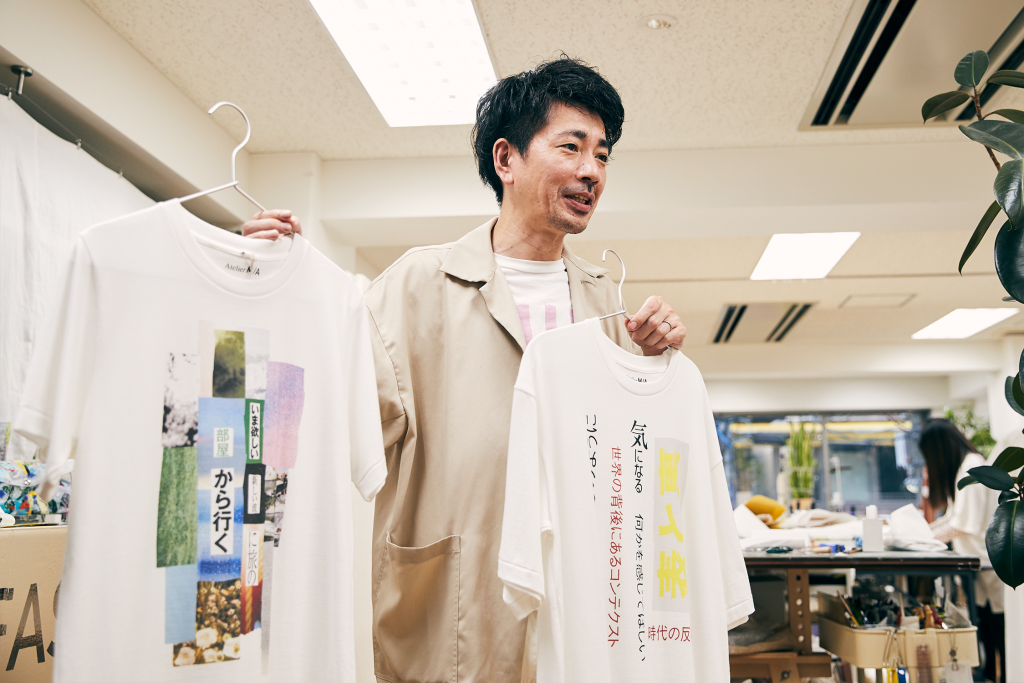
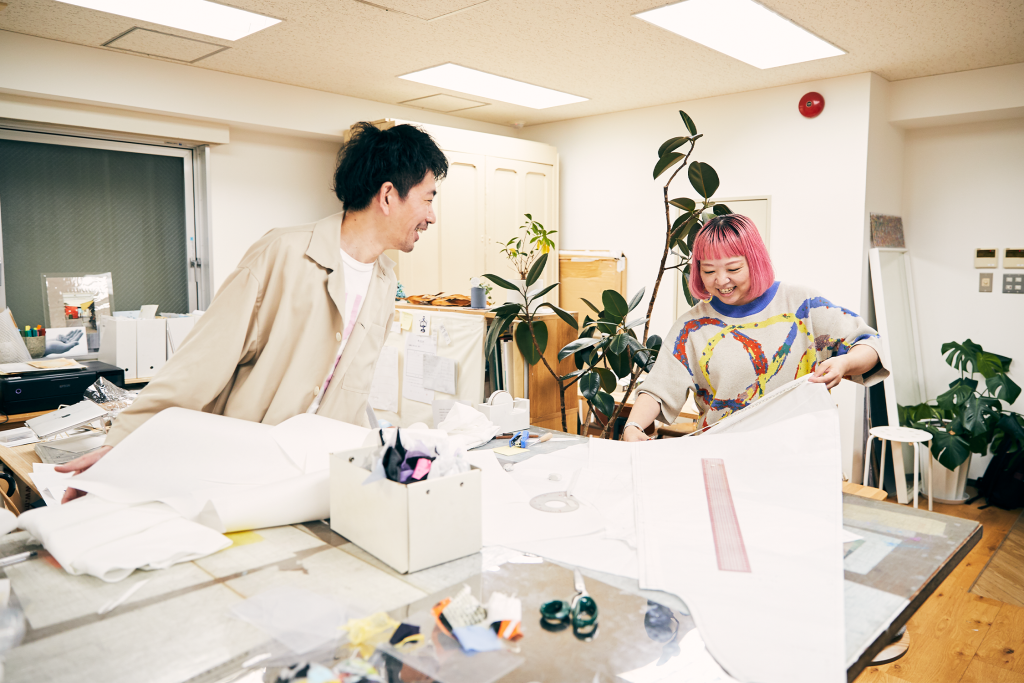
Profile
Atelier M/A, based in Osaka, is run by husband-and-wife team Masato and Azusa Koide. Their sustainable approach to fashion and art is inspired by living in Italy.